Rethinking Copyright in the Age of Generative AI
Striking a balance between incentives and innovation
Spinning economic growth and cultural preservation in Sarawak
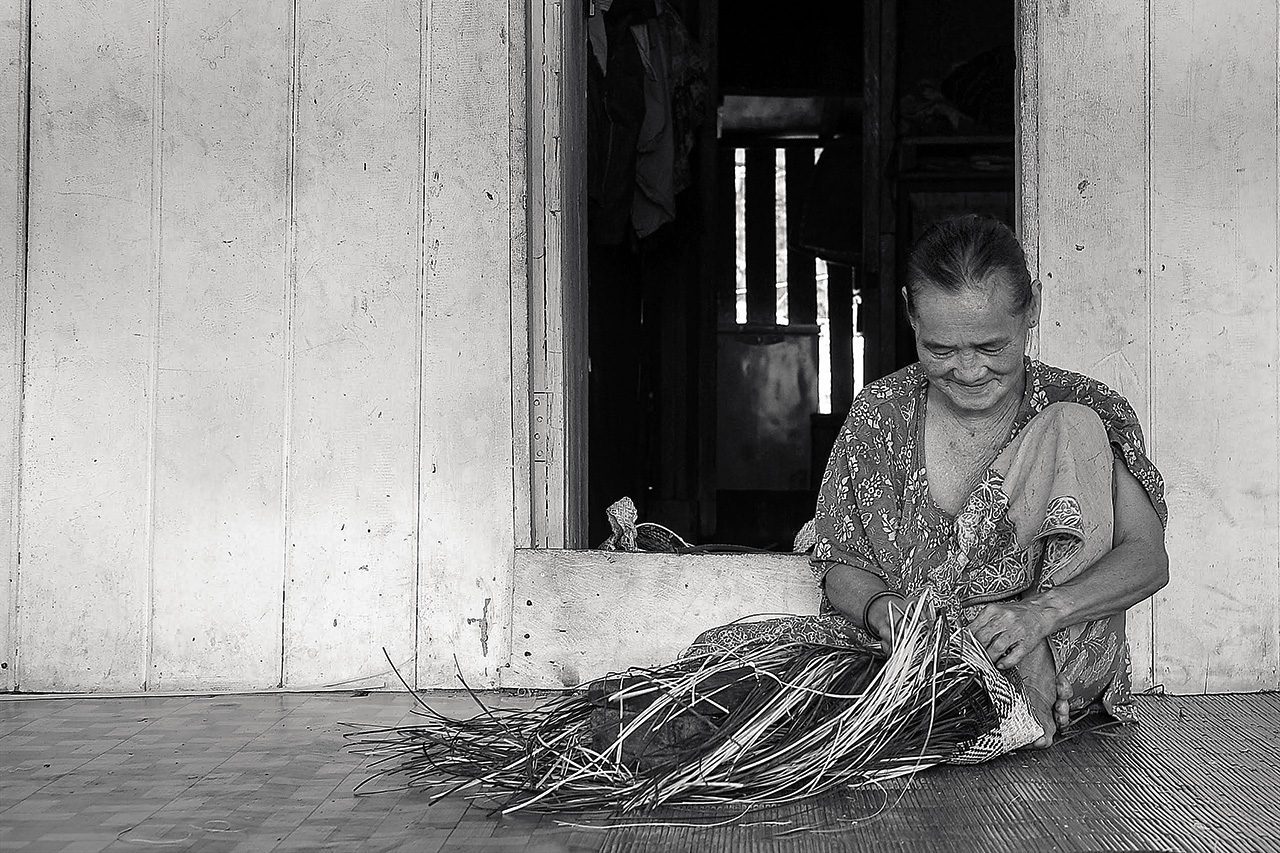
In remote forest communities, many ladies produce basketry products from rattan harvested from their surrounding rainforests, to generate income to sustain their lives. Tanoti works with more than 500 of such artisans, including Lirang Liwai from Long Balau.
We see images of hornbills everywhere we travel around Sarawak. In fact, this East Malaysian state is nicknamed the Land of the Hornbills in reference to the majestic birds that are endemic to its pristine rainforests. Jacqueline Fong, Founder and CEO of Tanoti, would prefer for the world to also know her home state for its women artisans who are keeping alive the ancient art of weaving.
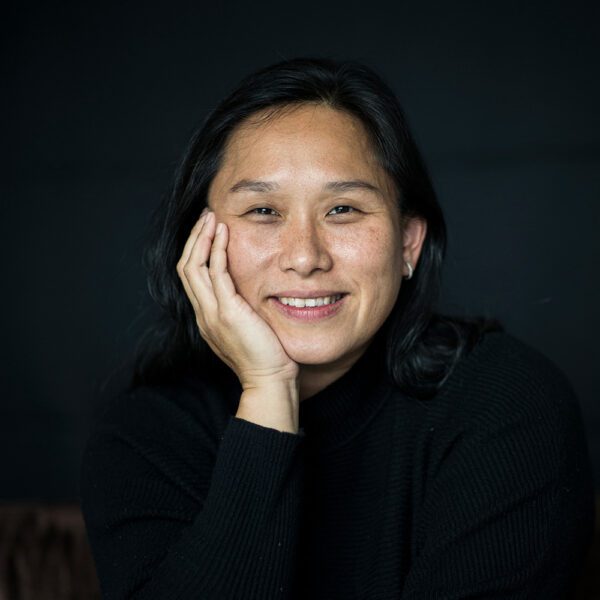
Jacqueline Fong, Founder & CEO of Tanoti
“Amidst Sarawak’s populace of 31 ethnic groups,” says Fong, “are fingers that hold strong the memory of skills and knowledge passed down from grandmothers to granddaughters.” The vivacious former investment banker founded Tanoti twelve years ago with thirteen weavers and a mission to improve the lives and livelihoods of womenfolk and rural communities. Currently, Tanoti works with 505 artisans residing in 25 communities across Sarawak.
The journey has not been an easy one for Fong. During its early years, Tanoti relied on a single revenue source from weaving songket, the traditional fabric of golds, silvers, and metallic threads, used by the Malay community for ceremonies and celebrations. Now their artisans also weave rattan and Pua Kumbu, ceremonial cloth with intricate designs that reflect the dreams of their women weavers who are part of the Iban tribe from Sarawak. Nevertheless, Fong was determined to move away from this model because she wants her weavers to have additional sources of income besides weaving.
After attending an accelerator program in 2019, Fong added two new business pillars: services and experiences. Services include promoting interest and awareness towards craft and the rich cultural heritage of Sarawak through tours that allow visitors to connect with local communities and artisans, and workshops to learn about traditional weaving. Tanoti has also recently introduced an 8-month songket weaving training program for participants interested in a career in traditional weaving.
Fong sees the experiences pillar as the one with the greatest opportunity for growth. The use of digital platforms to share physical and digital content allows Tanoti to provide opportunities for a much larger audience to experience craft firsthand. The inaugural Hasanah Gold Threads Awards, co-produced by Tanoti in 2023, for example provided an opportunity to showcase the works of top Malaysian textile weavers in six categories, as well as generating valuable content for Tanoti’s digital platforms and paving the way for future e-commerce opportunities.
Fong sees the three revenue pillars as overlapping circles in a Venn diagram, with each supporting and reinforcing the other two. Her mission is to grow the overall pie, and in doing so provide valuable income and job opportunities for the women artisans at Tanoti while protecting Malaysia’s intangible cultural heritage. Fong is succeeding and her impact covers several SDGs, including no poverty (SDG 1), zero hunger (SDG 2), decent work & economic growth (SDG 8), Industry, innovation & infrastructure (SDG 9) and reduced inequalities (SDG 10).
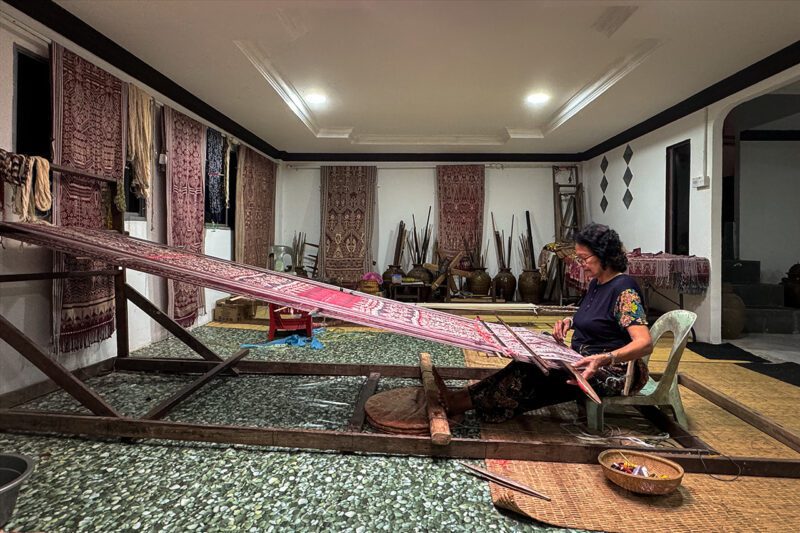
Master weaver Bangie anak Embol, aged 78, weaving in her longhouse Rumah Gare along the upper reaches of the Rejang River in Sarawak
But the road ahead is not straightforward. The COVID pandemic of the past couple of years has resulted in a slowdown in the development of new hotels and their associated interior design projects, an important source of revenue for Tanoti in the past. Fong hopes to address this issue by expanding into retail, including operating a flagship store in Kuala Lumpur, and participating in trade events internationally to expand Tanoti’s footprint.
Fong aspires to supply Tanoti’s songket and other weaving products to the haute couture and luxury fashion sector in Europe. To do so, Fong acknowledges that Tanoti needs to grow larger to be able to tap such a sophisticated market. “We want to build a powerful and defensible community of artisans that is recognizable all over the world, commit to SOPs, work ethic, time sheets, and production schedules.” And to grow, Tanoti needs investments.
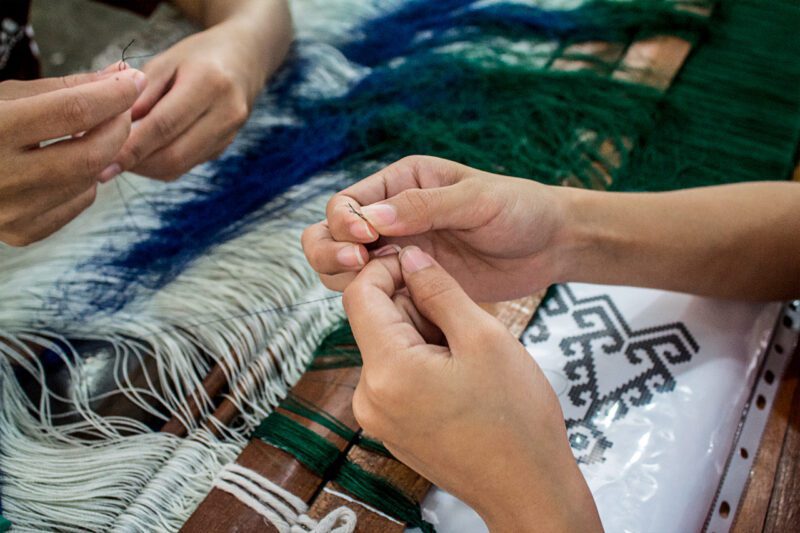
At Tanoti House, young women learn and continue to practice the ancestral techniques of songket weaving entirely by hand, and in the purist way.
Unfortunately, the craft industry is not one that attracts a lot of investments. To bridge this gap, Fong has sought philanthropic capital to support events and exhibitions as part of Tanoti’s experiences pillar. Adapting her focus to align with the priorities of sponsors has become necessary on occasions, but she embraces this practice as an integral part of fostering a robust ecosystem for the entire crafts sector.
Despite these challenges, Fong remains optimistic. In her own words, she is very focused and refuses to get distracted. Her aspiration is for Tanoti to grow into a world class company that offers a “unique product with no viable equivalent producers” – one that would be attractive for a global fashion brand to acquire. She believes that a relentless commitment to quality is the key to success. “Our logo denotes our pledge; what you see in the front of the weave is exactly the reverse at the back. There are no long floats in our songket because we do not practice any shortcuts in our weaves.”
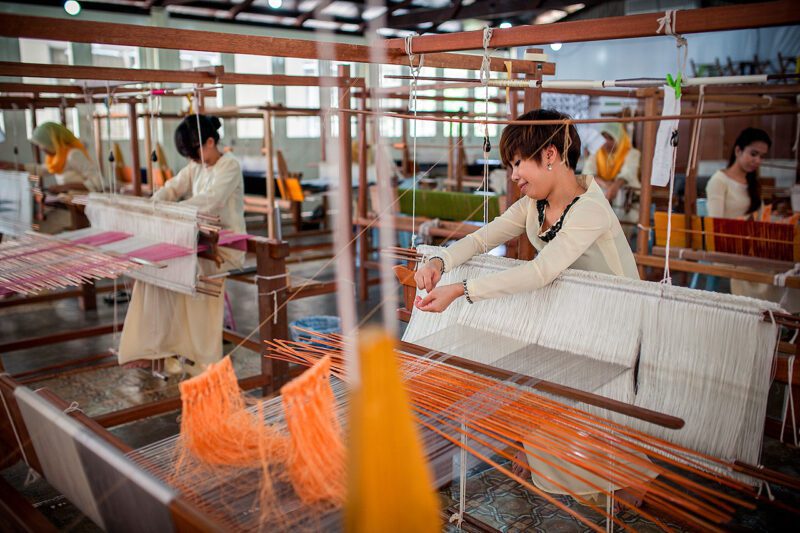
Weaver artisans at Tanoti House in Kuching, Sarawak
In the true spirit of impact entrepreneurship, Fong believes that it’s all about the artisans. Young women should not need a university degree to succeed in life if they have already learned a skill from their grandmother. She wants society to give these women their proper due and a chance to make a living that is no different from someone who gained their skills from attending lectures. “Because the skills that we learn from our grandparents and ancestors- from the university of elders – should be valued as well.”
Her acute awareness of the untapped and underappreciated potential of the weavers of Sarawak is Jacqueline Fong’s superpower. And she is using it to transform a traditional crafts business into a progressive atelier backed by a large community of artisans that will one day supply to luxury fashion companies around the world.
Related Content
Comments
Deep Dives
RECENT
Editor's Picks
Webinars
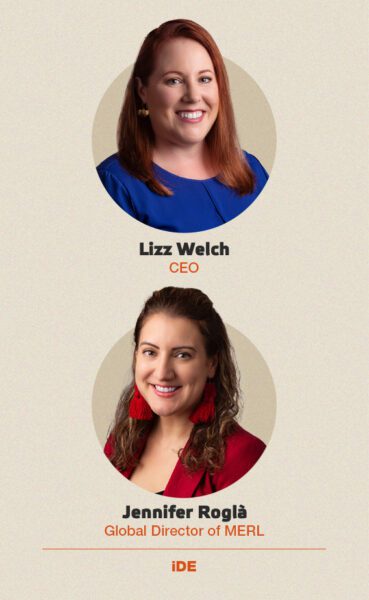
Featuring
Lizz Welch & Jennifer Roglà
iDE
May 16 - 12:00 PM EST

Impact Encounters
May 22 - 6:30 PM EST
News & Events
Subscribe to our newsletter to receive updates about new Magazine content and upcoming webinars, deep dives, and events.
Become a Premium Member to access the full library of webinars and deep dives, exclusive membership portal, member directory, message board, and curated live chats.
0 Comments